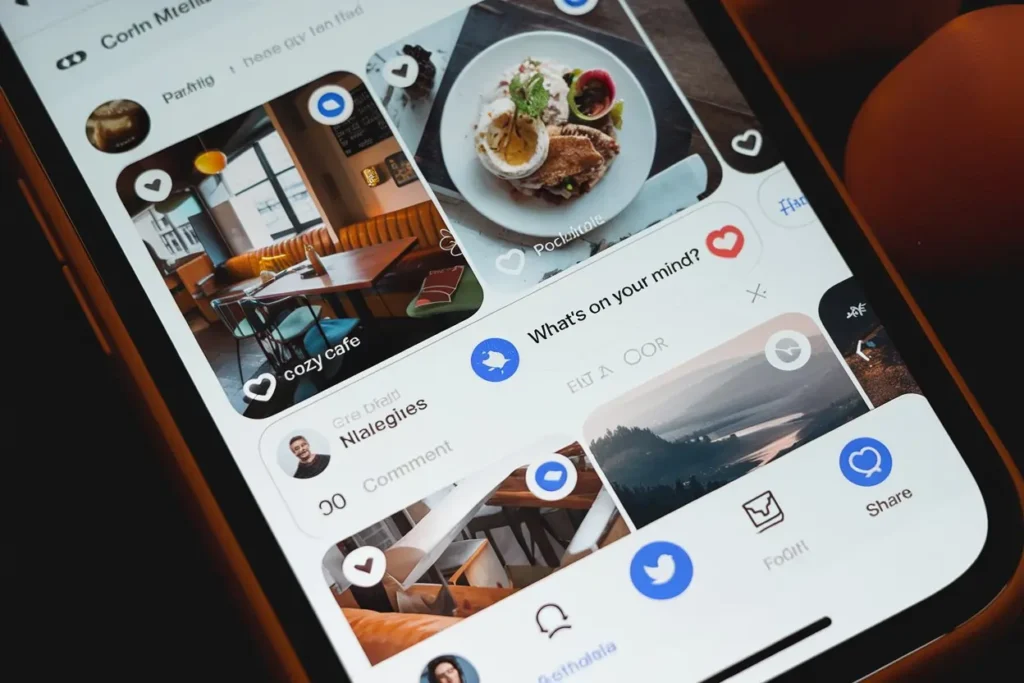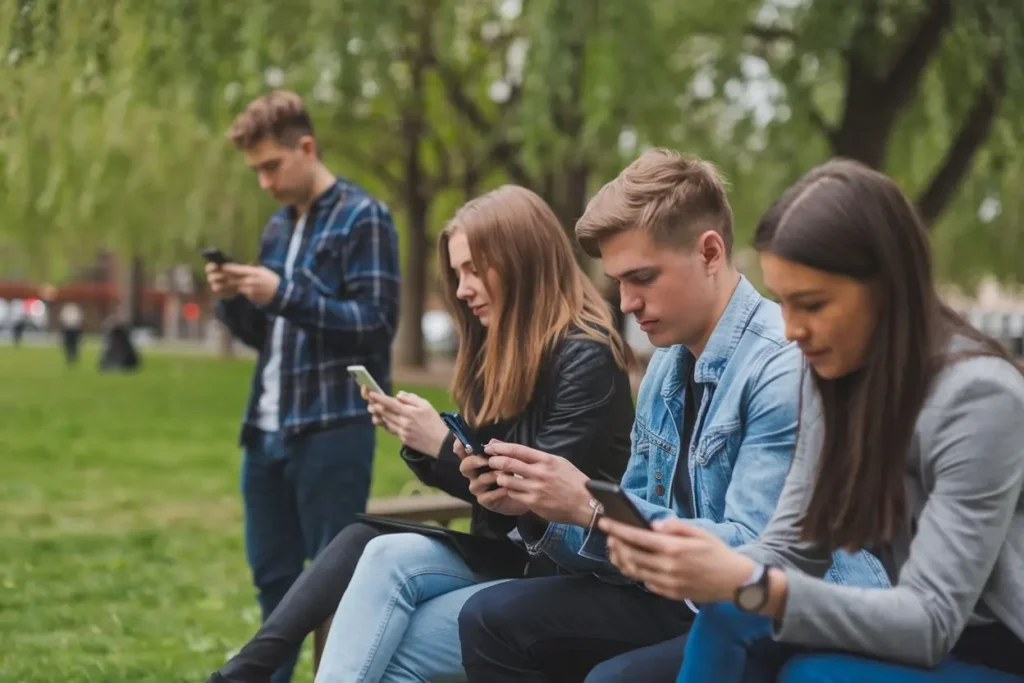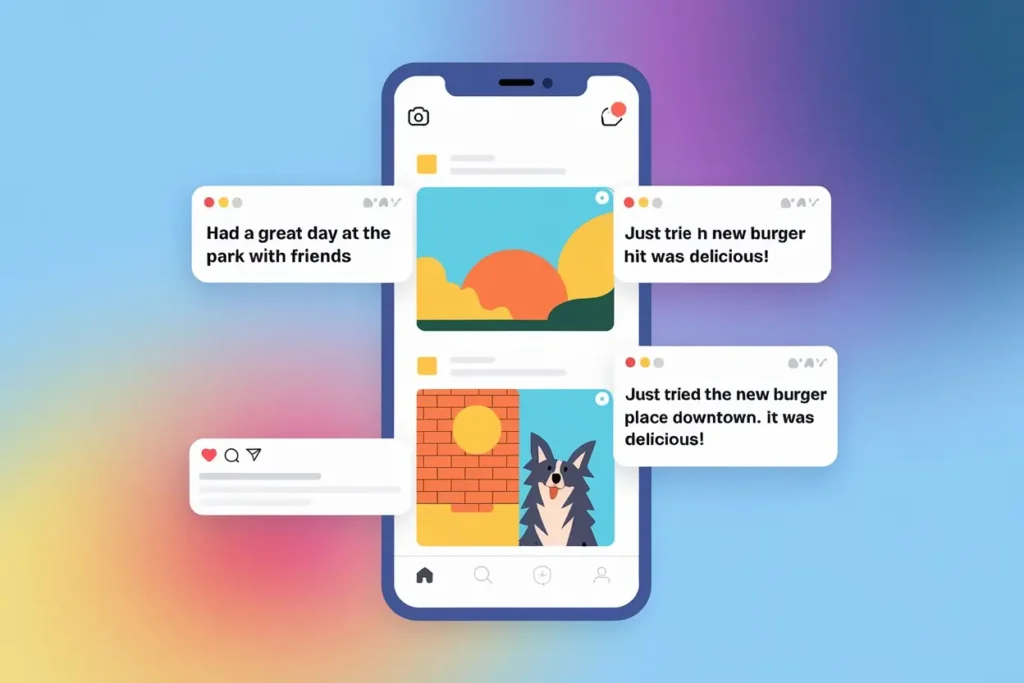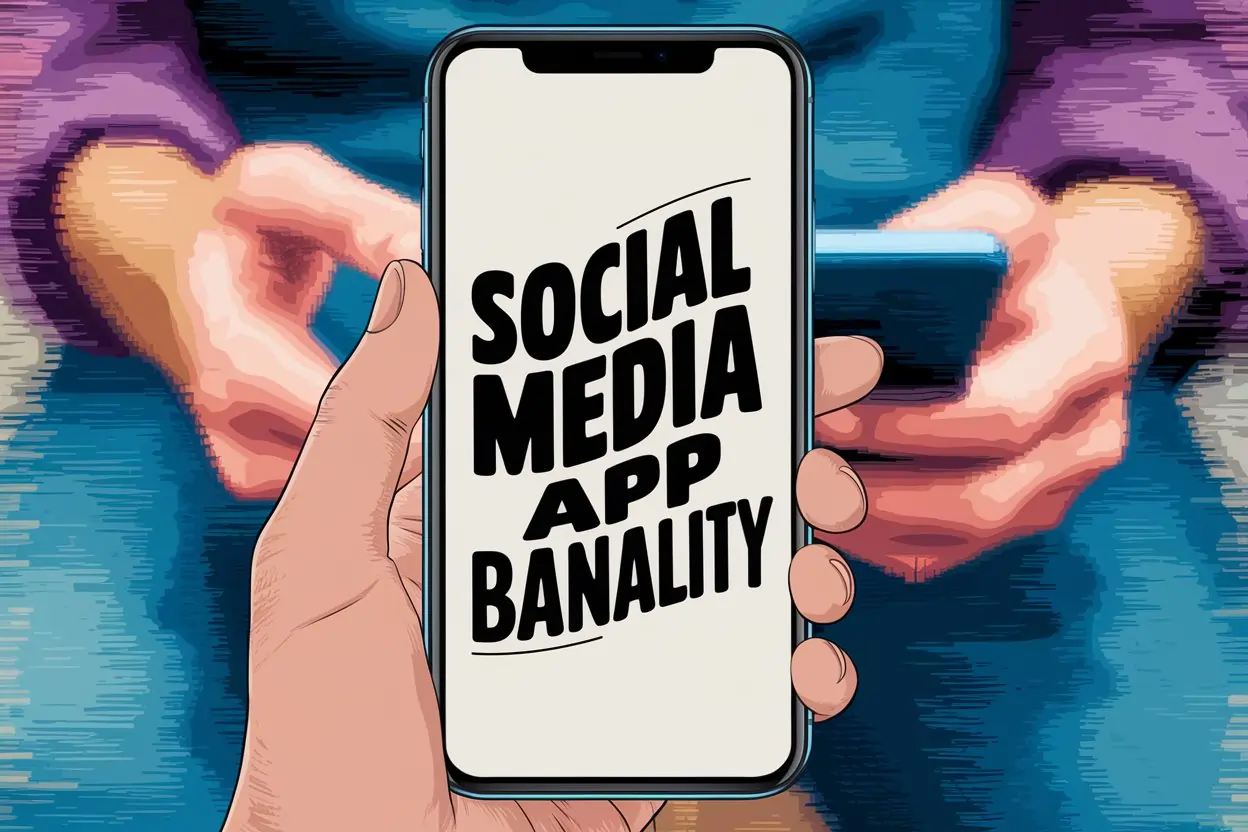In the age of smartphones, social media apps are a part of daily life for millions. We wake up, check our feeds, see what our friends and favorite celebrities are doing, and maybe post a quick update ourselves.
This routine has become so natural to many of us that we don’t often think about the everyday, repetitive nature of what we’re seeing and sharing. This article will explore the idea of social media app normality—the everyday, often boring content that fills our feeds—and how it shapes our online experience.
The Everyday Online Routine
When we think about social media, we often remember the big, viral moments: the tweet that everyone talks about, the Instagram post that gets millions of likes, or the TikTok video that becomes super popular.
But these big moments are just a small part of what happens online. Most of the time, we see ordinary, everyday content—like what someone had for breakfast, a picture of a pet doing something cute, or a quick comment about the weather.
This is the everyday routine of social media, where most interactions happen. It’s not the big, exciting things that keep people coming back to these apps every day; it’s the routine. This routine is built on the small, ordinary moments of life that people share with their friends and followers.
Same Things Keep Us Interested
Social media platforms are made to keep users interested, and one way they do this is by showing familiar, comfortable content. You might notice that your feed is full of posts similar to what you’ve liked or commented on before. If you often interact with photos of coffee or dogs, you’ll likely see more of the same.
This repetition creates a sense of familiarity. It’s easy to scroll through a feed full of posts that look and feel the same. There’s nothing surprising about them. This is done on purpose; the algorithms behind these platforms are set up to give you more of what you already like, keeping you scrolling for longer periods.
From my own experience, I’ve noticed that the most predictable, everyday posts often get the most likes and comments. A picture of a sunset, a quick thought about the weekend, or a meme that everyone has seen before—these are the kinds of posts that consistently get attention. It’s not that people don’t like originality; it’s just that the familiar is easier to interact with.

The Comfort of Routine
There’s comfort in the routine of social media. In a world that’s always changing and full of surprises, the predictability of what we see on our screens can be reassuring. When you log onto Instagram or Facebook, you know more or less what to expect. Your friends will post pictures of their meals, someone will share a funny video, and there will be a few inspirational quotes as well.
This sense of routine can be grounding, especially when life feels overwhelming. For many, checking social media is a way to take a break from the chaos of the real world. It’s a moment to relax and engage with something that’s easy and familiar.
The Repetition of Online Content
One downside of this repetition and routine is that it can create an echo chamber. As social media algorithms learn more about your preferences, they start to show you more of the same. This can lead to seeing only content that fits your existing tastes and beliefs.
For example, if you often engage with posts about a particular hobby or interest, your feed may become full of that topic, leaving out other types of content. This can make social media feel less like a window to the world and more like a small, self-contained bubble. The constant exposure to the same types of content can make everything feel a bit repetitive, even boring.

Losing the Realness of Life
As social media has grown, there’s been a shift toward a more polished and curated presentation of life online. People often post what they think will get the most likes or comments, rather than what’s really meaningful to them. The pressure to maintain an online image can lead to sharing content that is safe, predictable, and, honestly, a little dull.
This curation can lead to a loss of realness. Instead of sharing true moments—both the good and the bad—people might choose to only share the highlights. This creates a version of reality where everything seems perfect and well-organized. The everyday normality of social media then becomes not just about the boring aspects of life, but also about the boring aspects of a life that’s been edited to look just right.
How Normality Affects Our Feelings
The constant stream of ordinary, yet curated content on social media can have a quiet but strong impact on our feelings. As we scroll through feeds filled with seemingly perfect lives, it’s easy to start comparing ourselves to others.
We see the highlights of everyone else’s day—their perfect breakfast, their happy family photos, their fun weekend plans—and it can make our own lives feel less important by comparison.
This comparison can lead to feelings of inadequacy, loneliness, and even anxiety. We start to wonder why our lives don’t measure up, forgetting that what we’re seeing is often a highly edited version of reality. The normality of social media, with its focus on the ordinary and everyday, can make these feelings even stronger because it’s not just about the big, impressive moments—it’s about the little things too.

How Social Media Shapes Our Views
Social media doesn’t just show our reality; it shapes it. The more time we spend on these platforms, the more our views of the world are influenced by what we see. This includes not just the big, viral moments, but also the small, everyday posts that make up most of our feeds.
Seeing the same types of content over and over again can start to shape our expectations and our understanding of what’s normal.
For example, if our feeds are full of posts about fitness, it can create the impression that everyone is working out all the time, even if that’s not true. If we see constant updates about new restaurants and travel experiences, we might start to feel like we’re missing out if we’re not doing the same.
READ ANOTHER INFORMATIVE GUIDE: Is Actor Christian Kane Married?
Breaking Free from the Normal Routine
So, what can we do about the normality of social media? How do we break free from the cycle of repetition and routine that these platforms encourage?
One way is to be more intentional about how we use social media. Instead of scrolling without thinking, we can take a moment to consider what we’re looking for when we log on.
Are we looking for inspiration? Connection? Entertainment? By being more mindful of our goals, we can make choices that align with them, rather than just going through the motions.
Another way is to look for new and different content. This can mean following new accounts, exploring different topics, or even taking a break from social media altogether. By stepping outside our usual routines, we can expose ourselves to new ideas and views that can help break the cycle of normality.

Finding Value in the Everyday
Despite the challenges, there’s also value in the everyday, ordinary content that fills our social media feeds. These small moments—whether it’s a picture of a meal, a quick thought shared with friends, or a funny meme—are the building blocks of our online lives.
They help us stay connected to the people we care about, and they provide a sense of continuity and comfort in a fast-paced world.
The key is to find a balance between the ordinary and the extraordinary, between the familiar and the new. By doing so, we can create a social media experience that is both meaningful and enjoyable, one that reflects the full range of our lives, not just the highlights.
Social media normality isn’t necessarily a bad thing. It’s a natural part of the digital world, shaped by our human need for connection and routine.
But by being aware of it, we can make more conscious choices about how we engage with these platforms, ensuring that our online lives are as rich and varied as our real ones.




